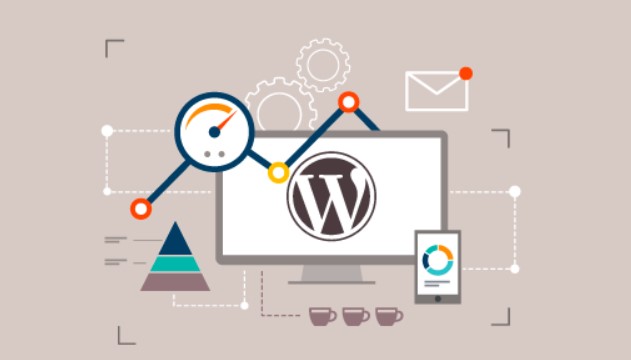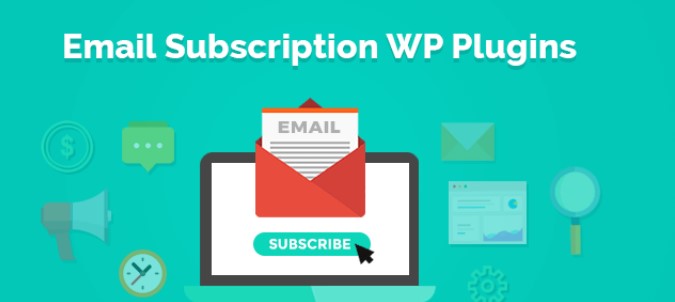The digital realm is bustling with possibilities, and for those who want to venture into the ecommerce industry, WordPress serves as a trustworthy companion. While the WordPress platform alone offers an extensive range of features, its true power becomes evident when complemented with plugins specially designed for ecommerce. In the intricate tapestry of virtual commerce, plugins can be the golden threads that elevate a basic online store into a thriving digital marketplace. In this comprehensive article, we shall delve into the labyrinth of the best WordPress ecommerce themes and plugins that serve as catalysts in the successful operation of online stores.
The Importance of Choosing the Right Plugin
The plugin you select for your ecommerce venture is much like the foundation stone of a building; the stronger it is, the more resilient your business will be. WordPress offers a plethora of plugins designed for different tasks, from inventory management to payment gateway integration. Each plugin is developed with specific functionalities that align with various business needs.
For instance, those who wish to accentuate visual appeal might go for a plugin that integrates seamlessly with themes for ecommerce website. On the other hand, business owners who prioritize ease of use might opt for plugins with intuitive interfaces. This makes the initial choice of plugins a critical juncture in your ecommerce journey.
Remember that not all plugins are created equal; some might offer better security features, while others might excel in enhancing user experience. Don’t settle for the first plugin you come across; instead, take your time to evaluate your options. Match your specific business requirements with the features offered by different plugins.
The plugin you choose will set the trajectory for your ecommerce website. So whether you are a startup or a veteran in the online retail world, never underestimate the power of the right plugin. It can be the catalyst for taking your business to new heights.
As you weigh your options, keep an eye out for compatibility with wordpress ecommerce theme and other technical aspects that can affect website performance. After all, the last thing you want is a plugin that slows down your website and tarnishes user experience.

Plugins for SEO Optimization
Search Engine Optimization (SEO) is the lifeblood of any successful ecommerce website. Fortunately, WordPress offers an assortment of plugins designed specifically to boost your website’s SEO. These plugins offer a variety of features like meta description editing, XML sitemap creation, and even suggestions to improve content for better search engine visibility.
WordPress online store themes often come SEO-ready, but adding a dedicated plugin can add an extra layer of effectiveness. For example, plugins like Yoast SEO come with a detailed analysis of your content, giving insights into keyword distribution, readability, and even the tone of the writing.
However, SEO is not just about enhancing the visibility of product pages. It extends to optimizing the user experience as well. Fast page load times and easy navigation can significantly boost your site’s SEO score. There are plugins focused on these aspects, providing you with caching solutions and image optimization for faster page loading.
Another overlooked area is mobile optimization. With the majority of consumers now accessing ecommerce sites via smartphones, having a mobile-optimized site can significantly enhance user experience and SEO. Therefore, when you are choosing an SEO plugin, make sure it has features that optimize your site for mobile devices.
Whether you opt for a free wordpress ecommerce theme or a premium one, remember that SEO plugins can make a significant difference in driving organic traffic to your website. While themes offer the skeletal structure, plugins serve as the muscle that powers your site through the ranks of search engine results.
Inventory Management Plugins
At the core of every ecommerce business lies a well-organized inventory. A mismanaged inventory can lead to delays, overselling, and eventually, dissatisfied customers. Enter inventory management plugins—your ultimate saviors in maintaining an organized warehouse, virtual or otherwise.
While most best WordPress ecommerce themes come with basic inventory management features, a specialized plugin can offer a more advanced and customizable solution. These plugins facilitate batch import and export of products, real-time inventory tracking, and integration with third-party tools and services.
The role of an inventory management plugin extends beyond merely tracking products. It also aids in managing the supply chain efficiently. For example, some plugins offer features that allow you to set reorder points for products, ensuring you never run out of stock.
Scalability is another factor to consider when choosing an inventory management plugin. As your business grows, so does your product range and customer base. A scalable plugin will adapt to your expanding needs, offering features like multi-location support and advanced reporting capabilities.
Overall, an inventory management plugin can serve as a pivotal tool in streamlining backend operations. Whether you’re using a WordPress store theme with limited inventory features or a fully-fledged ecommerce platform, these plugins can significantly upgrade your inventory management game.

Payment Gateway Integration
In ecommerce, the journey from adding an item to the cart to finally paying for it should be as smooth as possible. After all, a complicated checkout process can easily deter potential customers. Payment gateway plugins come into play here, enabling easy and secure transactions.
While it’s a given that any reputable wp ecommerce themes will be compatible with popular payment gateways like PayPal and Stripe, having a specialized payment gateway plugin can offer additional features. For example, some plugins offer one-click checkout, recurring payments, or even options for cryptocurrency transactions.
Security is a paramount concern, especially when financial transactions are involved. Make sure to choose a payment gateway plugin that is PCI DSS compliant and employs robust encryption techniques. Multi-factor authentication and secure tokenization of payment information can further bolster the security of transactions.
Convenience is another crucial aspect. Having a plugin that allows multiple payment methods, from credit cards to digital wallets, can make the checkout process more accessible for a diverse customer base.
The user interface is equally significant. A plugin with an intuitive interface ensures that the customers can complete the transaction without any hiccups, which is crucial for boosting conversion rates. A plugin that integrates well with your chosen WordPress wp ecommerce themes will maintain the visual coherence of your site, enhancing the overall user experience.
Plugins for Customer Relationship Management (CRM)
Building strong relationships with your customers is key to ensuring repeat business, and for this, a Customer Relationship Management (CRM) plugin is invaluable. These plugins help you manage customer data, track interactions, and even automate certain aspects of customer service.
Many of these plugins seamlessly integrate with the best free WordPress themes for ecommerce, offering a unified interface for managing customer data. Features might include automated emails for cart abandonment, personalized product recommendations based on browsing history, and even tracking customer lifetime value.
Just having a CRM plugin is not enough; you should know how to leverage its features to optimize customer engagement. Automated marketing campaigns can be incredibly effective when well-executed. The ability to segment your customer base allows for more targeted marketing, thereby increasing the likelihood of conversions.
However, CRM plugins aren’t just about marketing automation. They can also significantly streamline your customer service operations. Plugins with ticketing systems or live chat options ensure that customer queries are dealt with efficiently, thereby improving overall satisfaction.
Whether your store uses themes for ecommerce website or custom-built designs, a CRM plugin is a must-have. It doesn’t just help in retaining customers, but also enables you to acquire new ones by analyzing customer data to improve your marketing strategies.

Security Plugins for Ecommerce Websites
While the digital age offers incredible opportunities, it also comes with its share of vulnerabilities. Security plugins act as a bulwark against various online threats that ecommerce websites often face.
Such plugins offer features ranging from basic firewalls to advanced features like DDoS protection and real-time threat monitoring. The aim is to safeguard your online store, especially the transaction and user data, from unauthorized access and cyberattacks.
The best security plugins will work harmoniously with WordPress online store themes, offering you and your customers peace of mind. Always opt for plugins with regular updates, as new threats emerge continually, and an outdated plugin can leave you exposed.
You might think that SSL certificates and basic WordPress features are enough, but when it comes to ecommerce, there’s no such thing as too much security. Plugins that offer two-factor authentication, IP blocking, and even geofencing can add an extra layer of protection to your ecommerce store.
Given the frequency and sophistication of cyberattacks, even small and medium ecommerce businesses are at risk. Therefore, investing in a robust security plugin is not just an option; it’s a necessity for the survival and success of your ecommerce venture.
Speed and Performance Optimization Plugins
Speed is of the essence in the ecommerce world. A slow-loading website can significantly hurt user experience, bounce rates, and ultimately, your bottom line. Luckily, there are plugins designed explicitly to enhance the speed and performance of your WordPress website.
Whether you are using a free WordPress ecommerce theme or a premium one, loading speed can be optimized with plugins that offer caching, image compression, and script minification. A faster website not only elevates user experience, but also positively impacts SEO.
It’s essential to look for plugins that offer real-time performance analytics. These analytics can give you insights into what’s working and what needs improvement. You can then make data-driven decisions to enhance your website’s performance.
Opt for plugins that allow customization. No two websites are the same, and a one-size-fits-all approach might not always yield the best results. Plugins that let you configure settings to suit your specific needs are always a good choice.
Remember, performance optimization isn’t a one-time task; it’s an ongoing process. Always keep your plugins updated to ensure that your website continues to load quickly and smoothly. An out-of-date plugin can not only slow down your site, but also pose security risks, so staying updated is crucial.

Plugins for Analytics and Reporting
Data is the new gold, and in ecommerce, the more data you have, the better you can serve your customers. Plugins that offer advanced analytics and reporting features can provide you with invaluable insights into your business.
These plugins offer more than just the basic Google Analytics integration. They can track customer behavior, identify trends, and even forecast future sales. This kind of data can be a game-changer, especially when it comes to strategic decision-making.
Make sure that the analytics plugin you choose offers real-time reporting. Being able to monitor sales, traffic, and customer behavior in real-time can offer you a competitive edge. Whether you are using themes for ecommerce websites or custom designs, ensure that your analytics plugin integrates well with your existing setup.
Advanced reporting features that break down sales by product type, location, and even time of day can offer insights that are actionable. These plugins may also offer inventory reports, helping you manage your stock levels more efficiently.
Beyond just numbers, some plugins also offer visual representations like charts and graphs for easier analysis. This can be particularly useful for those who are not data scientists, but still need to understand the metrics to improve their ecommerce store.
Plugins for Affiliate Marketing
Affiliate marketing can serve as an additional revenue stream for ecommerce business owners. WordPress offers a myriad of plugins designed to manage and optimize affiliate programs efficiently.
The best plugins offer easy integration with wordpress wp ecommerce themes and provide a dashboard for tracking clicks, sales, and commissions. They can automatically generate unique affiliate links for your products, making it easier for affiliates to promote your store.
Affiliate marketing plugins also offer features like automated payouts, thereby reducing the administrative burden. This enables you to focus on core business activities while the plugin takes care of the nitty-gritty details of your affiliate program.
The reporting features of these plugins can be particularly insightful. Knowing which affiliates are performing well can help you optimize the program, offer bonuses, and even establish long-term partnerships with top-performing affiliates.
Moreover, some plugins offer advanced features like link cloaking and customization options for affiliates, making it easier for them to market your products. After all, the easier you make it for affiliates, the more motivated they will be to sell your products.

Localization and Multi-Language Plugins
E Commerce is a global phenomenon, and your online store has the potential to reach a diverse and widespread audience. To truly cater to international customers, localization and multi-language plugins can prove to be invaluable assets.
These plugins work seamlessly with most WordPress ecommerce themes, allowing you to offer your website in multiple languages. They automatically translate not just the content, but also the metadata, making your site more accessible and SEO-friendly across different regions.
Think beyond mere translation; localization involves adapting various aspects of your ecommerce store to meet the specific needs and cultural nuances of different markets. Some plugins offer currency conversion in real-time, provide local payment options, and even adapt the layout based on the location of the visitor.
However, it’s crucial to choose a plugin that is regularly updated to accommodate changes in language and localization norms. Moreover, machine translations can sometimes miss the subtleties and context; thus, the plugin you choose should allow manual corrections.
The integration should be smooth and should not affect the loading speed or performance of your site. After all, the last thing you would want is for your WordPress store theme to become sluggish just because you want to offer a multi-language interface.
Plugins for Subscription Management
Subscriptions are becoming an increasingly popular business model in the ecommerce space. Whether it’s a monthly beauty box or a yearly software license, managing recurring payments can be a complex task. Thankfully, there are plugins specifically designed for subscription management.
Many of these plugins are compatible with various wp ecommerce themes and offer features like automated billing, renewal notifications, and even prorated charges for plan changes. These functionalities can significantly reduce the administrative workload involved in running a subscription-based business.
It’s also essential to consider the customer’s perspective. Look for plugins that offer an intuitive and user-friendly dashboard where customers can manage their subscriptions, track renewal dates, and update payment methods.
Reporting and analytics are just as crucial in subscription management as they are in other aspects of ecommerce. Opt for a plugin that offers in-depth insights into churn rates, lifetime value, and other subscription-specific metrics. This information can help you fine-tune your subscription models for maximum profitability.
Lastly, make sure that the plugin integrates seamlessly with your existing setup. Compatibility with your best WordPress ecommerce themes will ensure a cohesive user experience, which is crucial for customer retention in a subscription-based business.

Chatbot and AI Plugins
Artificial Intelligence (AI) is no longer the stuff of science fiction; it’s a reality that is transforming various industries, including ecommerce. Chatbot and AI plugins can significantly enhance user engagement, offer personalized experiences, and even handle customer service inquiries.
These plugins are particularly useful for handling frequently asked questions, thereby freeing up your human resources to deal with more complex queries. Many such plugins are designed to be compatible with a range of WordPress online store themes, ensuring that the chat interface blends naturally with the website’s design.
AI plugins can offer personalization at a scale that is otherwise impossible to achieve manually. From recommending products based on browsing history to sending targeted emails, AI algorithms can significantly enhance customer engagement and improve conversion rates.
However, while AI and chatbots offer numerous advantages, it’s important to use them judiciously. Over-reliance on automated systems can sometimes lead to impersonal or incorrect responses, which can be off-putting for customers. Always keep an option for human intervention in customer interactions.
Choose plugins that offer the flexibility to adapt the AI algorithms based on your specific needs. Whether you’re using themes for ecommerce websites or custom designs, the plugin should offer customization options to align with your brand’s voice and objectives.
Plugins for Email Marketing and Customer Retention
In the world of ecommerce, attracting new customers is only half the battle; retaining them is equally important. Email marketing plugins can serve as invaluable tools in your customer retention strategy, sending targeted messages based on consumer behavior and preferences.
These plugins generally integrate seamlessly with various wp ecommerce themes, allowing you to create and manage email campaigns directly from your WordPress dashboard. They offer a range of features including list segmentation, automated responses, and detailed analytics to measure the success of your campaigns.
Highly advanced plugins take it a step further, offering dynamic content that changes based on user interaction. Imagine sending out an email where the product recommendations are tailored to the items that a customer has viewed or added to their cart. This level of personalization can significantly boost engagement and conversion rates.
But it’s not just about sending emails. The best plugins also provide insights into customer behavior, such as email open rates, click-through rates, and even conversion tracking. These analytics are critical for refining your email campaigns and tailoring your messages to better meet the needs of your audience.
Conclusion
Venturing into ecommerce is an exciting journey filled with numerous possibilities. WordPress serves as a reliable platform, offering an extensive range of plugins that can turn a simple online store into a dynamic ecommerce website. From inventory management and payment gateway integration to SEO and customer relationship management, the right plugins can be your ticket to ecommerce success.
Whether you are running a website on a best free WordPress theme for ecommerce or a premium one, never underestimate the power of the right plugin. Each plugin serves as a building block in the robust structure of a thriving online business. So, choose wisely and harness the full potential that WordPress plugins offer for your ecommerce venture.


